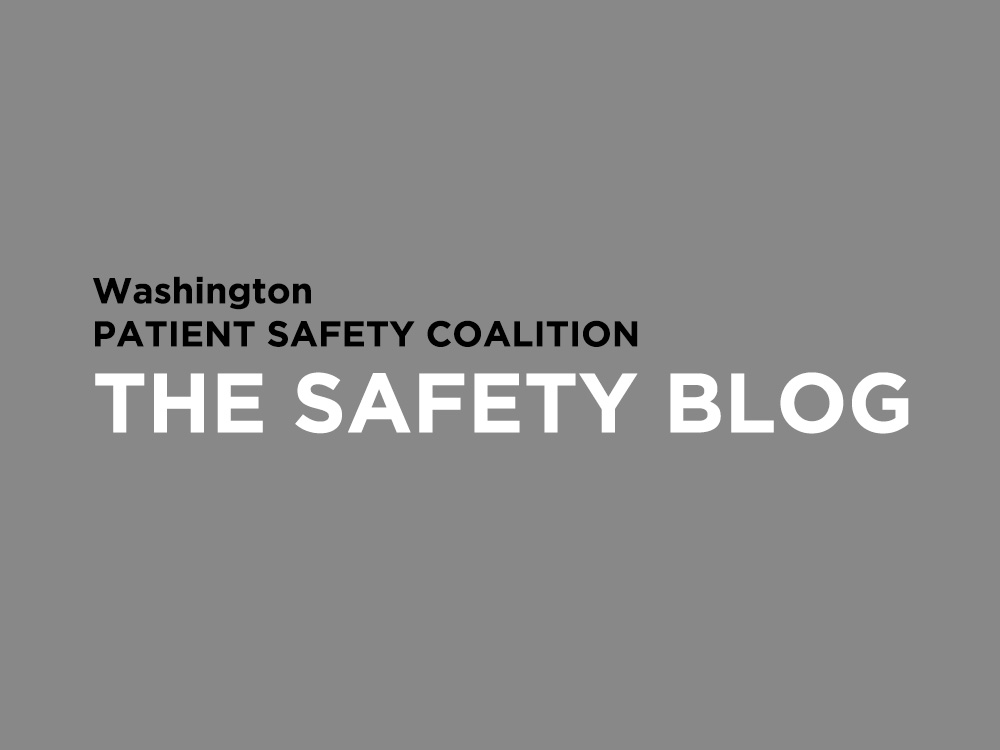- FHCQ Foundation for Health Care Quality
- COAP Care Outcomes Assessment Program
- Spine COAP Care Outcomes Assessment Program
- SCOAP Care Outcomes Assessment Program
- OBCOAP Care Outcomes Assessment Program
- CBDR
- Smooth Transitions
- WPSC Patient Safety Coalition
- Bree Collaborative Bree Collaborative
- Health Equity Health Equity
- Admin Simp
- Contact Us
Accountability is not always about one person

Accountability is not always about one person
I have found during my experience as both a nurse and quality professional that frontline staff’s perception of medical errors is of a punitive nature. Even questions asked about what could potentially harm your patient today, while in your care, provoke that look of fear and sometimes even defensiveness.
There truly appears to be a “wall” of some kind, a resistance to wanting to “go there.” So I change the subject and might ask them to show me how medications are retrieved from the med room/dispensing station. We go through the steps and the process. I will ask questions such as: do you ever find a medication in the wrong drawer or multiple patients’ medications in the wrong drawer? The nurse appears willing to talk about the fact that pharmacy does make errors from time to time. I probe a bit and say: how do you think that might happen? Well, they could be a new employee in the pharmacy, or maybe they didn’t do a double check? So I ask: how do you as a nurse double check that you have the right medication from the drawer? (I hope the answer is not ‘Well, I rely on Pharmacy doing it correctly and assume it is right’.) The nurse proceeds to tell me that she does her “5 Rights” prior to administration. When I ask her what would happen if she gave the wrong medication that Pharmacy stored in the dispenser, she states she would let her manager know, Pharmacy would be notified, and an incident report would be filled out. Then what would you hope the follow up would be? That the pharmacy manager would find out what happened.
This is a perfect example of how the holes in the Swiss cheese line up and the outcome was a medication error. I explain to the nurse the whole model of how errors can happen in healthcare: the fact that each area of the hospital has its own internal processes and all the departments are linked together, and we need to learn the functionality of the processes when we make mistakes. There was no one person responsible for the error– the organization is accountable to understand and learn from it. The nurse’s responsibility is to do her checks to ensure the medication is correct; if it isn’t, she can contact the pharmacy herself. The pharmacy is responsible to follow up with the tech or staff member who stocked the medication incorrectly. The managers of both the pharmacy and nursing unit find out from each employee if there were any contributing factors, e.g., distractions, competency issues, etc. that played a part in the error. The physician’s responsibility is to inform the patient of any unanticipated outcome. The organization is responsible for understanding its culture of safety and for development strategies that move toward transparency and wanting to learn from mistakes: characteristics of high-reliability organizations.
The 10 minutes I spent with that one nurse was valuable to both of us and to her patients. If we want to break down the “walls” we have to be willing to develop relationships with front line staff who, like me, are human – fallible and yearning to do the right thing. We have to look at the systems and the role we play as patient advocates. We are all accountable.
Nicola Heslip, RN, BSN, CPHQ, CLNC, CPSO, President at Turning Point Healthcare Consulting, LLC Thoughts to share with Nicola? We will forward them to her.
Recent Posts
- TakeCharge This Patient Safety Awareness Week: 5 Steps to Safer Healthcare
- Stigma & Bias in Healthcare: The Obstacles, Consequences and Changes Needed
- Agility in Crisis: How The Everett Clinic responded to COVID-19
- Collaboration over Competition: How Pediatric Hospitals Can Thrive When They Work Together
- Reducing Stress for Health Professionals During the COVID-19 Pandemic

